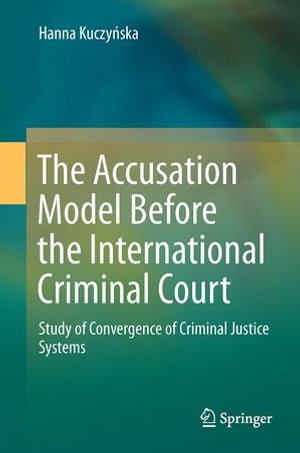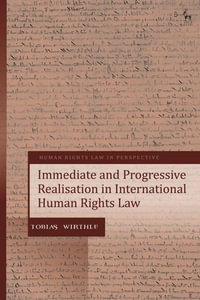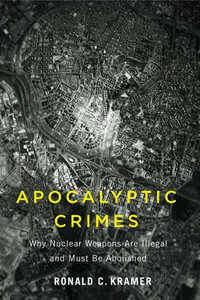
eTEXT
The Accusation Model Before the International Criminal Court
Study of Convergence of Criminal Justice Systems
By: Hanna Kuczy?ska
eText | 7 May 2015
At a Glance
eText
$159.01
or
Instant online reading in your Booktopia eTextbook Library *
Read online on
Desktop
Tablet
Mobile
Not downloadable to your eReader or an app
Why choose an eTextbook?
Instant Access *
Purchase and read your book immediately
Read Aloud
Listen and follow along as Bookshelf reads to you
Study Tools
Built-in study tools like highlights and more
* eTextbooks are not downloadable to your eReader or an app and can be accessed via web browsers only. You must be connected to the internet and have no technical issues with your device or browser that could prevent the eTextbook from operating.
ISBN: 9783319176260
ISBN-10: 3319176269
Published: 7th May 2015
Format: PDF
Language: English
Audience: General Adult
Publisher: Springer Nature
Country of Publication: US
You Can Find This eBook In
This product is categorised by
- Non-FictionLawLaws of Specific JurisdictionsCriminal Law & ProcedureCriminal Procedure
- Non-FictionLawInternational LawPublic International LawInternational Criminal Law
- Non-FictionLawInternational LawPublic International LawInternational Humanitarian Law
- Non-FictionLawJurisprudence & General IssuesComparative Law
- Non-FictionLawInternational Law
- Non-FictionLawJurisprudence & General Issues
- Non-FictionLawLaws of Specific JurisdictionsCriminal Law & Procedure







![Strategies against Bullying : incl. Bonus - Deal with Cyber-Mobbing, Manipulation & Intriguing Colleagues! Guidlines to Communication & Conflict Resolution [Examples, Templates, Checklists] - Simone Janson](https://www.booktopia.com.au/covers/200/9783965960176/9512/strategies-against-bullying.jpg)
















